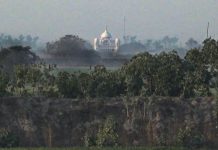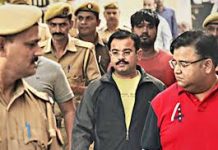 The recent gunning down of a senior print journalist in Bihar and a TV news reporter in Jharkhand by unidentified gunmen confirms the report of Reporters Without Borders that India has become the third most dangerous country for journalists in the world. Not only that, our country has got the dubious distinction of becoming Asia’s most deadly country for media personnel ahead of even Pakistan and Afghanistan.
The recent gunning down of a senior print journalist in Bihar and a TV news reporter in Jharkhand by unidentified gunmen confirms the report of Reporters Without Borders that India has become the third most dangerous country for journalists in the world. Not only that, our country has got the dubious distinction of becoming Asia’s most deadly country for media personnel ahead of even Pakistan and Afghanistan.
TEHELKA has been in the forefront to raise issues concerning journalistic fraternity and it notes with concern that only war-torn Iraq and Syria had recorded more deaths of journalists than India.
Pooja Tiwari, a woman journalist, died under mysterious circumstances in Faridabad in the NCR earlier this month. In Jharkhand, Akhilesh Pratap Singh, a journalist of a TV news channel was gunned down at Dewaria in Chatra district. Though Pooja’s death is still shrouded in mystery, the killing of Rajdeo Ranjan, the Hindi daily Hindustan’s Bureau Chief in Siwan, Bihar, less than half a kilometer away from the Siwan Town police station points to the complicity of police and people in power. Ranjan, who used to cover local politics and crime extensively, had recently written several reports on the nexus between criminals and politicians, including on a former Member of Parliament serving a life term for murder. In February 2016, Karun Mishra, who worked with the Hindi daily Jansandesh Times, was shot dead by gunmen on motorcycles in Sultanpur, Uttar Pradesh. The journalist had been targeted for his reports on illegal soil mining. Two murders were linked to illegal mining as the journalists had exposed sand mining mafia, a sensitive environmental subject in India. In Chhattisgarh, four journalists — Santosh Yadav,
Somaru Nag, Prabhat Singh and Deepak Jaiswal — all working out of the Bastar region, have been arrested on politically motivated charges since July 2015.
Another journalist — Malini Subramaniam — who had reported extensively on human rights violations by the state government, was forced to leave Bastar in February 2016 following attacks on her home and alleged police pressure on her landlord.
Sadly stepped up crime against journalists witnessed in 2016 is a sequel to gory incidents witnessed during 2015 when nine journalists were killed during the year in India. Amnesty International India recently demanded that the Indian authorities must bring to justice those behind the killing of journalists and they must be protected from threats and allowed to function in an unhindered manner. We at TEHELKA hope that the government would respect the constitutional right to freedom of expression of its countrymen, including journalists.
letters@tehelka.com








